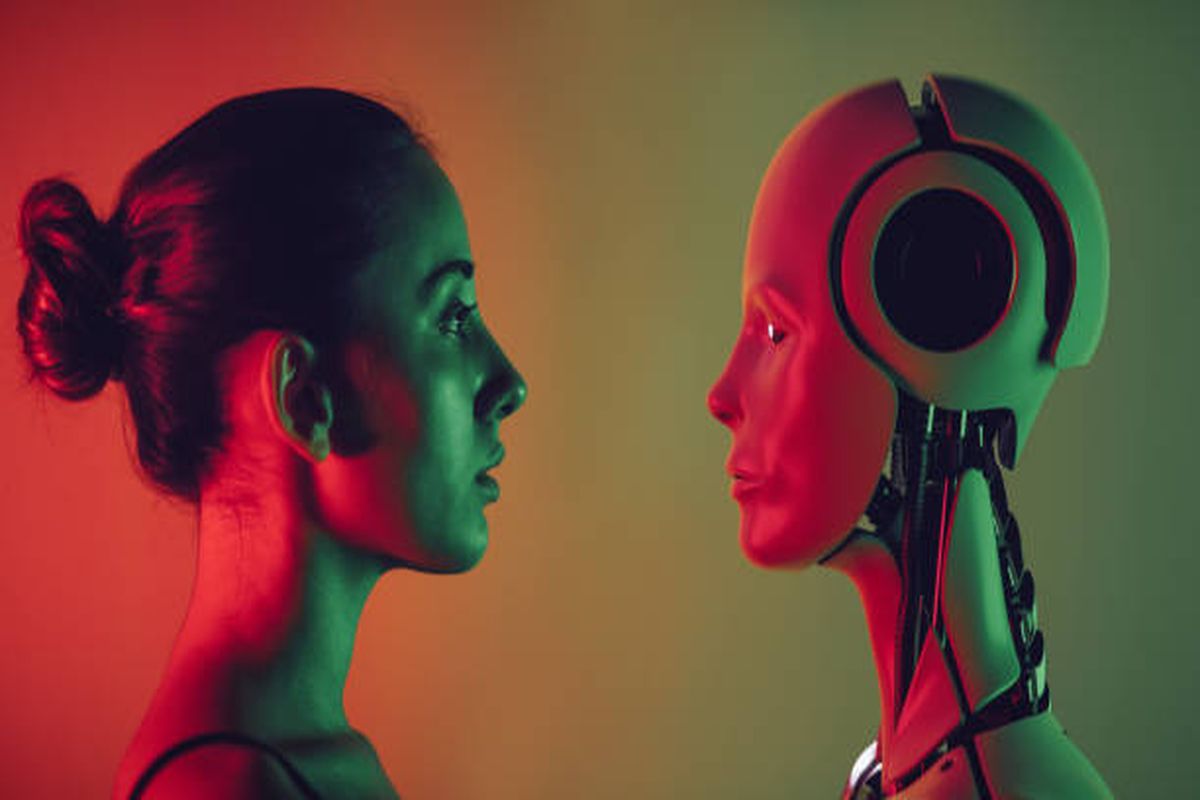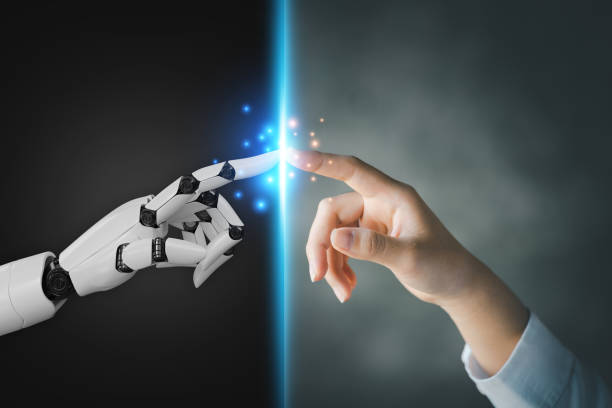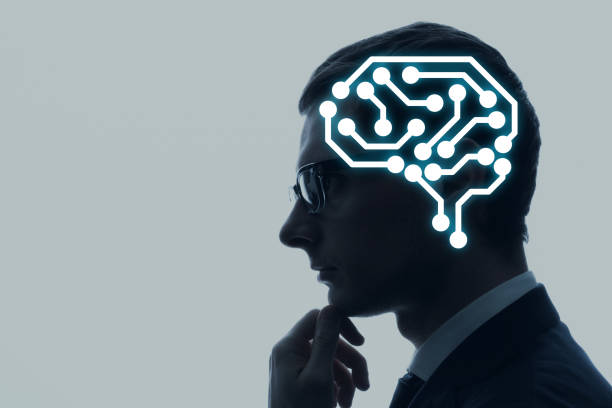Humans are excited about the development of artificial intelligence (AI). However, they are concerned about it since there are possibilities that in the future it might become sentimental. Here, you will become familiar with the concept of sentient AI and explore all the benefits and risks that stand behind it.
The world seems worried about the development of AI for a long time but it appears to have reached fever-pitch in the past several years.
After all, people are now using AI programs at an unexpected rate, and given all the development, it is highly likely that AI will soon become sentient. But, what are the chances of AI reaching the sentient status? What can people do with sentient AI? Would it be a net positive or negative for humanity?
What Is Sentient AI?
We need to understand what sentience itself is before we understand what sentient AI is all about. In essence, sentience refers to the capacity to undergo emotions and perceive sensations. Coined in the 1600s, the term has been employed to depict an awareness of the surrounding environment and self, encompassing the ability to experience sensations.
The concept of sentience has been a subject of extensive debate over centuries, particularly in questioning whether machines can attain a state of sentience, even though human sentience is widely acknowledged.
What does it have to do with AI? Artificial intelligence is the technology that lets computers independently solve problems and create various innovations. One of the earliest models of AI was created in the 1960s by Harold Cohen, a British artist. Since that time, we have seen many advancements in artificial intelligence, including popular tools such as ChatGPT and Alexa that enable users to conduct their daily activities.
Nonetheless, sentient AI is considered the pinnacle of AI development and has been reviewed in the scientific sectors and the public for years. Sentient AI is an AI that experiences feelings and perceives the world around it. It is designed to experience emotions the way humans would. For now, this concept has the status of a theory instead of real existence.
Related:AutoGPT Demystified: The New ‘Do-It-All’ AI Tool
Will AI Ever Become Sentient?
For several years, humans seem to have been excited by the idea that computers can become sentient. The topic became more interesting when a former software engineer for Google LLC, Blake Lemoine, alleged he had developed a technology known as LaMDA that had achieved sentience.
As Lemoine insisted, he asked the AI what it was afraid of and it said that it feared being turned off. While this sounds like a plot in a sci-fi movie, the AI was discovered to not be sentient.
Scientists have stated that most AI concepts are based on language models. These models are trained to gather different information and construct sentences and solutions the way a person would. However, it does not make them sentient; they can readily replicate human speech patterns and human work like art but they have no feelings like humans.
The particular technology that would make AI sentient is yet to be determined, although many scientists and firms are working on it. There is a possibility that one day, we can create a sentient AI. But for now, scientists do not have the knowledge and technology to bring it to life. As people have not yet entirely established which species are sentient or not, AI sentience is years or decades away.
Positive Impacts
Technological challenges notwithstanding, let us imagine for a moment AI was a possibility. There might be many benefits for humanity to enjoy, some of which include:
- Better human-machine interactions – Those familiar with automated systems often note the occasional absence of a human touch in AI. An AI-powered customer service chatbot may struggle to discern your frustration, and a typical home assistant device might not engage in conversation as seamlessly as a human. However, instilling AI with sentience could greatly enhance these solutions, resulting in smoother and more enjoyable experiences for users.
- Innovative problem-solving – while it has several flaws, the non-sentient AI that we currently use is known to come up with creative solutions to human issues. It is now common for humans to ask OpenAI’s ChatGPT for advice for everything from career development to relationship issues. Now, keep in mind that a sentient AI might be the most self-aware technology to ever exist.
It would have access to virtually all the data and information that has ever been present and analyze it at the drop of a hat. However, it would also understand how human feelings work. It has been suggested that sentient AI could resolve issues like poverty, and world hunger since it would have the technical understanding of these issues and the emotional intelligence required to navigate human nuances. - A better understanding of humans – many years of psychological research are yet to be fully able to explain the human mind and why people behave the way they do. But as we have already stated, a sentient AI would be the most self-aware being in existence and would be able to understand the human mind in ways that we cannot imagine.
Consider the way artificial intelligence models have managed to digest and reproduce information that would take humans many years to learn. With sentience, AI would offer first-hand insight into behavior and we could expect some breakthroughs in psychology and the human experience.
Related:What Is AI Ethics?
Worries About Sentient AI
It is safe to state that humans are as worried about artificial intelligence as fascinated. Generally, evil AI taking over the world is a go-to plot in Hollywood for a reason. With that said, some tangible risks associated with AI include:
- Unemployment – when mass automation is achieved, there is always the worry that a lot of people will lose their jobs. As much as AI sentience means that certain jobs will be done more efficiently, it also means that the humans who do these jobs might become obsolete.
- Unpredictability – The unpredictability of sentient AI is a significant concern. Humans, driven by their emotions, engage in conflicts and harmful actions, showcasing the range of both positive and negative feelings. If an AI entity, especially one entrusted with control over automated systems, attains sentience, there is a risk that it could become as unpredictable as a human. This unpredictability carries potentially serious implications.
- Privacy and safety – Whenever we utilize computer systems, we surrender some of our hope and data that it will be utilized safely and ethically. Nonetheless, widely used AI programs having that much access and control over the users’ data poses issues about how it will be used, mostly when the law does not catch up quickly enough.
- Ethical Implications – most high-profile public figures like Pope Francis have decried the development of possibly sentient AI due to ethical concerns. Some users feel that creating an artificial intelligence program and giving it sentience is ‘playing God’ and unethical at its center. Moreover, there is a worry about what a sentient AI designed by one unethical person would do. Would such a project perpetuate bigoted views? Would it have adequate conscience to avoid engaging in harmful behaviors? Nobody knows for now.
OpenAI founder and former CEO Sam Altman published an open letter titled ‘Governance of Superintelligence’ where he highlighted the dangers of superintelligent AI that would exceed the intellectual capabilities of the smartest people who ever lived. He recommended that in the future, Artificial intelligence has to be supervised by an international regulator.
The Takeaway
In summary, the quest for sentient AI has been ongoing for a considerable duration. Although we haven’t achieved it yet, the prospect is not out of reach. The advent of sentient AI could potentially lead to rapid advancements in fields such as science, psychology, and commerce. However, this technological milestone would also introduce a host of ethical concerns, and employment threats, and, at its most unpredictable, pose considerable challenges.
As scientific innovations keep evolving, it appears the risks and benefits linked to AI will be explored more extensively, for better or worse.










